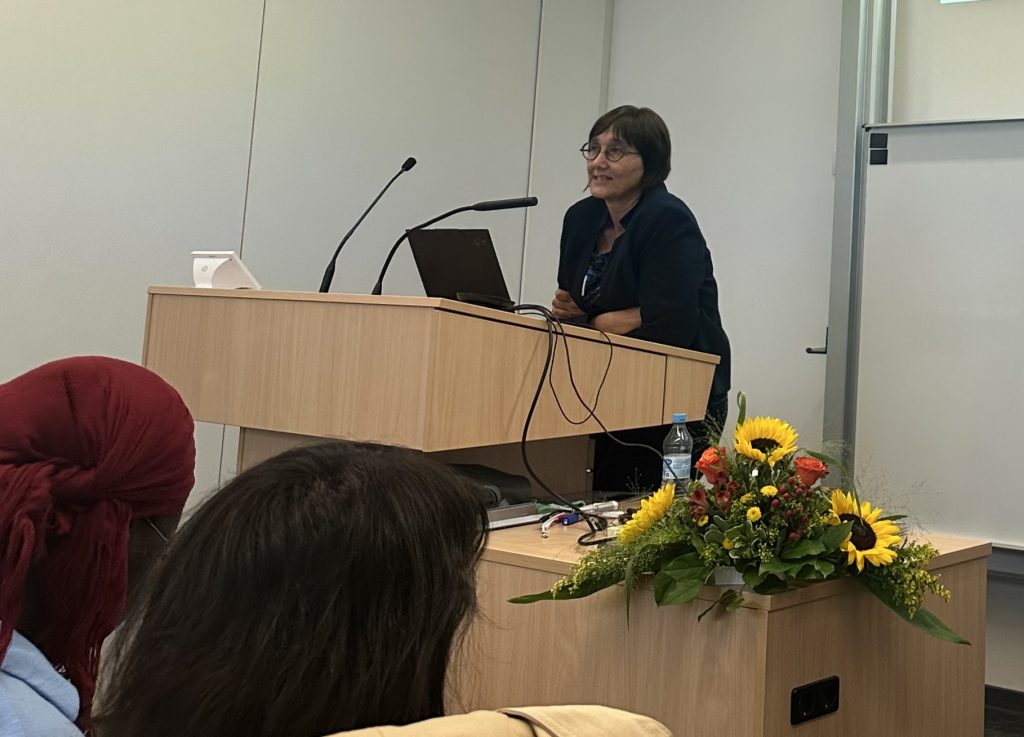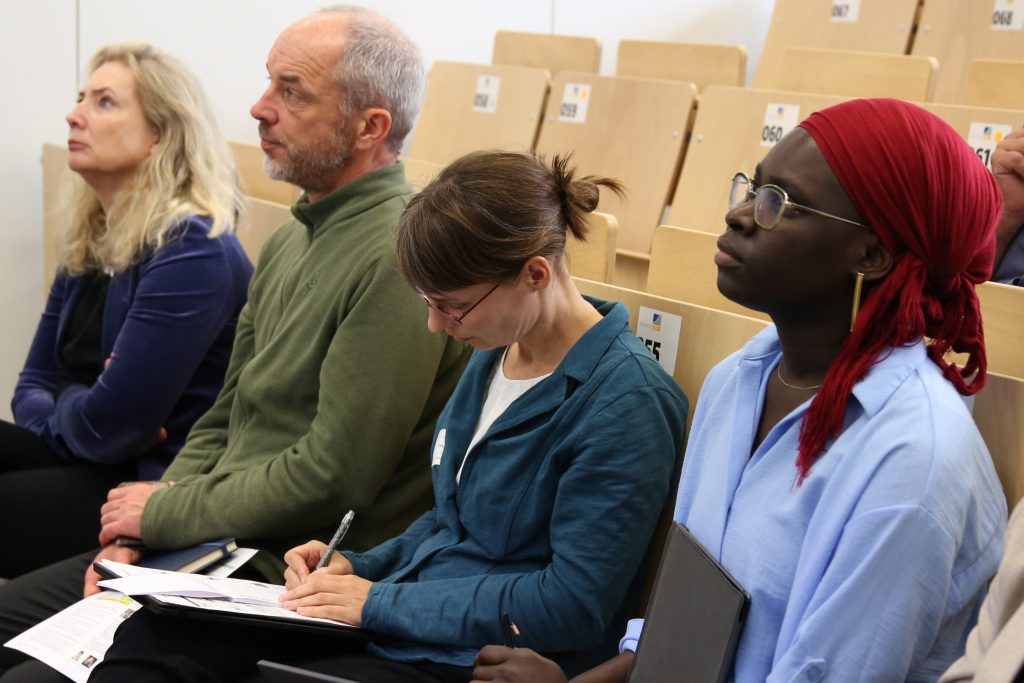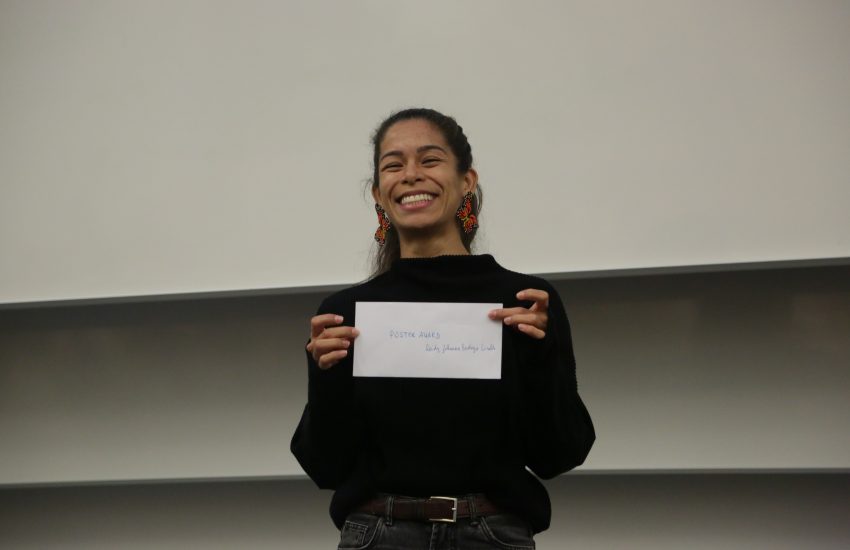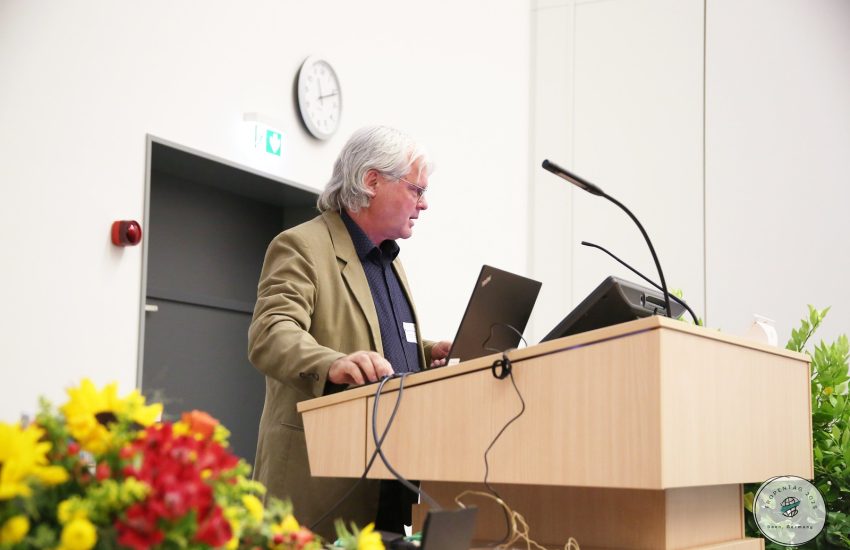Bridging Equity and Sustainability in Agricultural Water Management: Lessons from Africa and Germany
As climate change reshapes rainfall and intensifies competition for water, farmers face a dilemma: how can irrigation secure both survival and sustainability?
This dilemma took center stage at the Tropentag 2025 pre-conference workshop on “Reconciling Equity and Sustainability in Agricultural Water Management,” where international experts compared approaches from very different contexts. Two presentations drew particular attention: Amy Faye & Claudia Ringler on Sub-Saharan Africa and Nataliya Stupak on Germany—underscoring how regions worlds apart confront the same urgent challenge: equitable and sustainable access to water.

Sub-Saharan Africa: resilience under pressure
In Sub-Saharan Africa, rainfall remains the backbone of agriculture, yet its increasing unpredictability makes farming more precarious. Irrigation is no longer just about raising yields; it is increasingly becoming a lifeline for production.
Evidence from Burkina Faso, Mali, Niger, and Senegal shows that small-scale irrigation can double or even triple land and labor productivity compared with rainfed farming. It also improves nutrition, stabilizes incomes during climate shocks, and empowers women.
Two approaches dominate the region:
- Farmer-led systems: centered on privately owned pumps, wells, or micro-canals, allowing individuals to invest in high-value crops and act on entrepreneurial opportunities.
- Non-farmer-led systems: usually large public schemes that provide collective infrastructure and stability but often lack flexibility.
Together, the two approaches can complement each other: farmer-led systems add initiative and dynamism, while collective schemes ensure scale and stability.
Yet irrigation’s footprint across the region remains modest. High costs for pumps and water-lifting technologies, poor rural infrastructure, and limited access to finance slow expansion. This makes irrigation policy not just a technical issue but an equity question: who can afford the investment, who gets access to credit, and whose land and labor benefit from it?
Germany: regulation and rising demand
A very different, but also similar, picture emerges in Germany. Only around five percent of farmland is irrigated, pretty much the same level as in Sub-Saharan Africa. Irrigation is largely concentrated in horticultural regions or areas of low rainfall. Also similar to Africa, climate change is expected to increase irrigation demand by nearly 20 percent by the end of the century. Groundwater, the dominant source, is already under mounting physical and regulatory pressure.
Here, the challenge is not about accessing irrigation technology but about managing irrigation fairly and sustainably. Federal states set their own withdrawal limits and fee structures, requiring farms to obtain permits or to form associations that collectively manage and distribute water. Extension services are evolving into water-management hubs, advising farms on water-use planning, infrastructure sharing, and conflict avoidance. Despite these innovations, persistent data gaps—such as insufficient knowledge about actual crop water requirements or the origin of irrigation water—continue to undermine evidence-based decision-making.

The paths may differ, but the destination is shared: a farming system where water management strengthens both livelihoods and natural resources.
Converging lessons
Despite their differences, both regions highlight the same truth: irrigation is about more than pipes and pumps—it is about people, power, and policies.
In the Sahel, equitable expansion depends on the availability of affordable technology and stronger support systems. There are few policies, and there is little data on what is happening on the ground. In Germany, equitable management hinges on clear rules, collective planning, and reliable data. In both contexts, sustainability requires collaboration rather than competition—among farmers, institutions, and policymakers alike.
The bigger picture!
The broader message is clear: Equity and sustainability are not opposing goals but reinforcing principles. When smallholders gain access to affordable technologies and when institutions enforce fair rules for water use, agricultural water use becomes more resilient. The paths may differ, but the destination is shared: a farming system where water management strengthens both livelihoods and natural resources.



